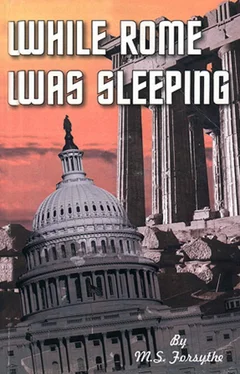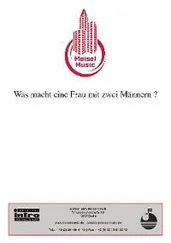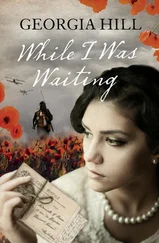“Bullshit,” Brad cut him off. “You’re after something and you’re down to two minutes.” Brad turned away and walked to the window watching the traffic below and looking at his watch.
“To get back to your story, tell me about your wife, Coleman? She’s stood by you all these years; she must be a special lady. How did she do while you were in Vietnam?”
Brad didn’t answer. He sensed the question had to do with Kincaid’s agenda and he waited.
“Come on, General,” Andrew was pushing. He knew Coleman was angry. “How did you do while you were in Vietnam? I’ve heard you did very well. You saw some combat with the 11 thCavalry, after that you were assigned to Germany. After a while you came back to the States and a couple of plum assignments came along; and now here you are Deputy Director of the Defense Intelligence Agency. And you did well in other areas too, didn’t you?”
Now a cold fury had come over Brad. “What do you mean? Get to the point, Kincaid; remember what I told you about the power of the press not withstanding… don’t push too far!”
Andrew wound up for the pitch. “I just want to know, Coleman, if your lovely wife Olivia, knows about Lia Dupre’? And if so did she know Lia was a spy?”
Brad was visibly shaken; his face had become ashen and it took everything he had to control his rage and surprise. “I don’t know a Lia Dupre’ or anyone else named Lia. I don’t know where you get your information, Kincaid, but you need better sources.” Brad’s voice was low and he emphasized each word like a bullet striking its mark. “Now get out,” he said as he moved to the telephone to call the desk.
“Okay, I’m going. I guess I should consider this to be a hostile interview, eh, General? I would also guess this means that your lovely wife Olivia doesn’t know a Lia Duprè either. Am I right? Perhaps you should ask her,” Andrew offered a parting shot as the door closed behind him.
Brad used a phone code connecting him to Autovon and dialed a military number. “This is General Coleman, put me through to Dolliver.”
In a moment he heard, “Yes Sir, this is Dolliver, Sir.”
“I have been notified of, and have verified, a possible security breach. I’m ordering surveillance and monitoring of a Seattle Times columnist, Andrew Kincaid, and a woman who may be feeding classified information to unknown sources. The woman’s name is Charlene Thayer. Both are residents of Seattle. Addresses are as follows.”
“We’ll get on it right away, Sir. It will be done immediately, Sir. Are there any further instructions?”
“Not as yet; we need to ensure the leak is found as soon as possible. We’ll discuss its termination later.”
Brad finished packing.
1:30 PM
Andrew’s trip to the Olympic had gone better than he had hoped for. He congratulated himself on agitating Coleman. It seemed equitable that the General receive a little of the same medicine he had dished out to Charlene Thayer, and for that matter, to Andrew as well. Andrew’s dislike of Bradley Coleman for a variety of reasons was growing and he was certain Coleman didn’t harbor any warm fuzzies in his direction either.
As he was leaving the hotel he glanced into the dining room and caught sight of County Councilman Bob Mitchell lunching with a former Seattle Mayor who was now a key member of the opposite political party. He watched them briefly, engaged in deep conversation and wondered about the meeting.
He found it interesting that a few weeks ago he would have paid a waiter to eavesdrop; now his interest was only slightly piqued by the meeting. In fact, seeing Mitchell only irritated him. He was still not sure how the situation at the KGM would shake out, but it was becoming clear in his mind that an apology would not be forthcoming.
He entered the lobby of the Times totally preoccupied with his interview with Coleman and at first didn’t hear Wendy say, “Here are your messages, Andy.” Then she called in a louder voice, “Andrew, here are your messages.” And then, “Are you all right?”
“Oh, Wendy, I’m sorry, I—, thanks. I was thinking about something—” mumbling an apology. As he quickly thumbed through the messages, his eye caught the name Jack Hubbard. He noted that the call had come in shortly after he had left for the Olympic.
He dashed up the stairs through the newsroom and stopped in shocked surprise. Sitting calmly in his chair, feet on the desk, reading Andrew’s column was Jack Hubbard.
Jack laughed as he said, “Andy you old son of a gun—I took a chance that you would still be at the Times—how are you? You can close your mouth now.” The tall figure slouched in Andrew’s chair rose to greet him with a half embrace and handshake.
“What are you doing here?” Andrew asked incredulously.
“I figured you’d return to the scene of the crime eventually,” he laughed, tapping Andrew’s column. Jack looked older than the last time Andrew had seen him. He was thinner than the usual 190 pounds he carried on his tall frame, and his dark blonde hair showed strands of silver.
Though he smiled, Andrew noted that some of the merriment in his eyes was gone and a few deep lines were evident on the tanned face.
“Just thought I should stop by and talk about our mutual friend.”
Andrew looked puzzled. “What mutual friend would that be?”
“George Kelshaw, I assume he found you.” Jack answered raising his eyebrows in question.
“Oh, yeah, he found me, sort of. Boy! Do you have any idea what you got me into?” Andrew exclaimed.
“That bad, huh?” Jack smiled, knowingly.
“Well not all of it—,” Andrew, fumbled for the right phrase, but Jack hadn’t noticed.
“I would suppose, since you got caught in the web, that something has happened to George and he didn’t make it.”
“No. No, he didn’t,” Andrew said resignedly. “But now that you’re here, I’d like to know more about him and how the two of you were connected.”
“Andrew,” Jack said, standing and drawing himself to his full 6’ 2” height. “We need to talk in a more relaxed atmosphere. What’s your schedule today?”
“I have to finish my column and then I have a broadcast later this PM. Why don’t we meet for dinner? Where are you staying?”
“Nowhere yet, I thought I’d check in at the Sheraton. I need to get a few hours sleep.”
“No, no, go to the Washington Athletic Club as my guest. I’ll meet you there after 6:00 for dinner. It’s quiet and it will give you time to sack out for several hours.”
“You mean 1800 hours, don’t you?” Jack laughed “You civilian!”
“Oh, right, military time; don’t “civilian” me. Remember, my friend, I was a member of the Washington National Guard—still am,” he said somewhat proudly.
They shook hands, and Jack shouldered his large traveling bag, “See you at the Washington Athletic Club after 1800,” he said appreciatively.
Andrew watched Jack amble past reporters’ desks, pausing to shake hands with those who recognized him, stopping and joking with one or two of the editors.
A feeling of unrest crept over Andrew. Two weeks ago he was satisfied for the moment with his current niche. But George Kelshaw changed all that. Now, even Bob Mitchell didn’t stir any interest one way or the other.
He thought about Charlene Thayer and how much she had impacted his life, in so little time. “Yes, Kincaid, your life has changed,” he said to himself. He would call her later and plan to see her tomorrow.
Turning to the mostly written column Andrew began the process of the last rewrite.
It was 2:30 when the phone rang. Over the usual cacophony of the newsroom he heard Savalza’s voice, “Returning your call, Andy, what’s going on? By the way, since we last talked a couple of things have happened that I thought you should know.”
Читать дальше












